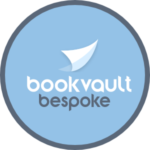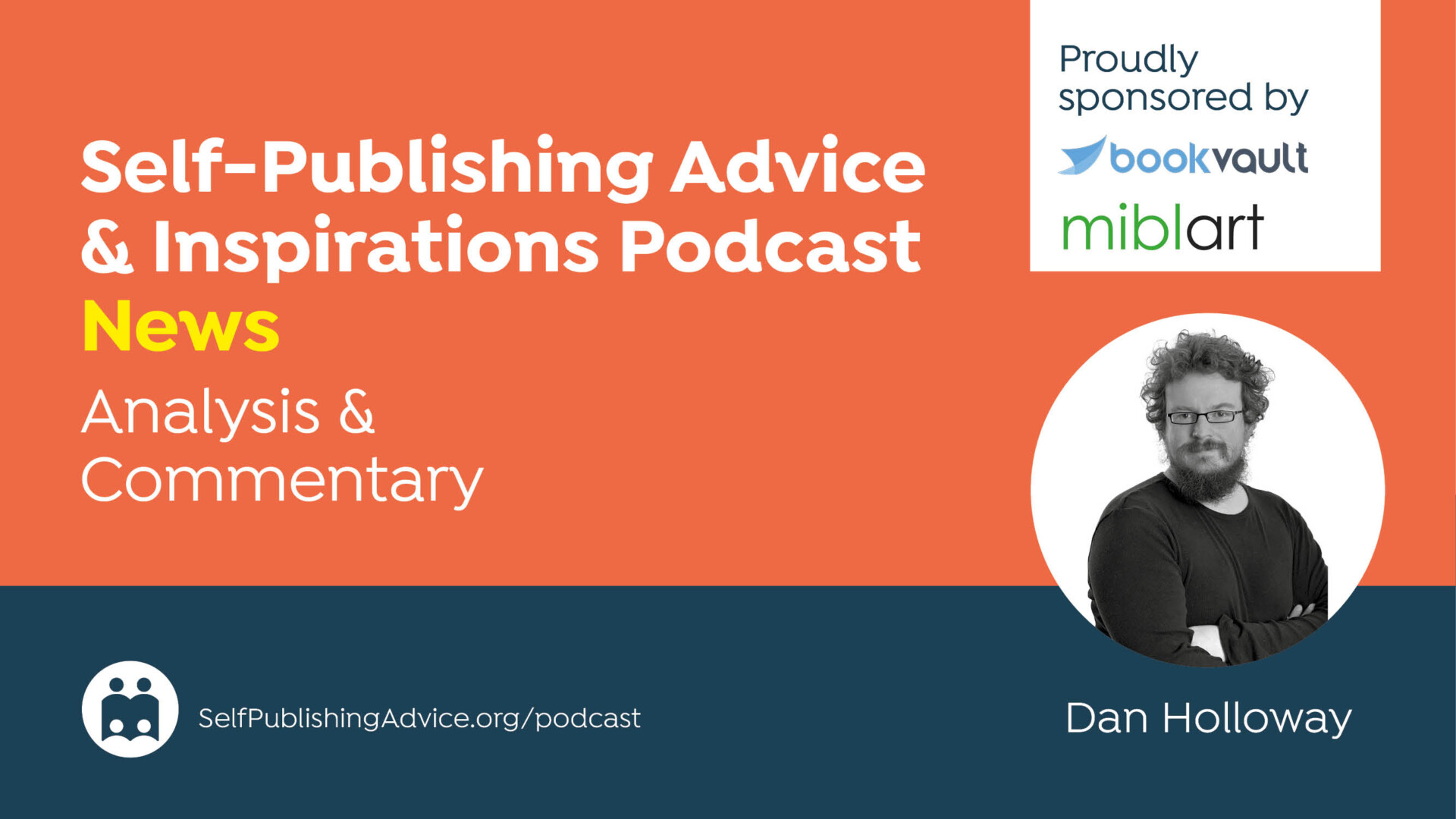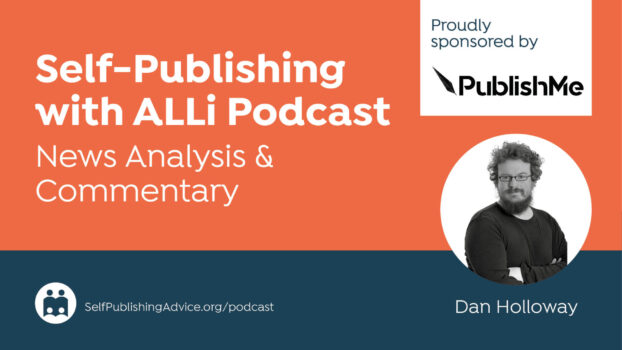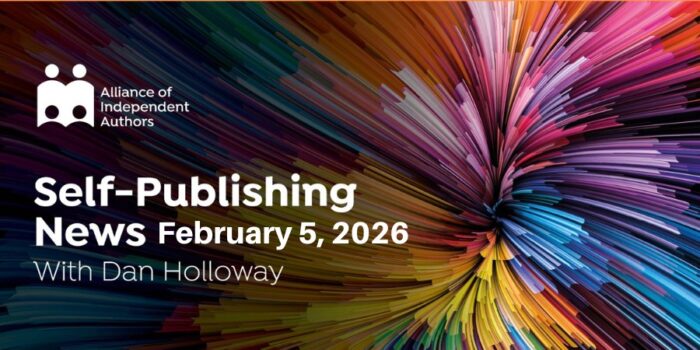On this episode of the Self-Publishing News Podcast, Dan Holloway examines a major survey of over 13,500 authors, revealing strong opinions on AI license deals. The findings show widespread support for transparency and compensation, with most authors preferring licensing bodies over publishers to manage these agreements. Dan also explores the implications for indie authors relying on platforms like Amazon and Spotify.
Sponsors
 All our ALLi podcasts are proudly sponsored by Bookvault. Sell high-quality, print-on-demand books directly to readers worldwide and earn maximum royalties selling directly. Automate fulfillment and create stunning special editions with BookvaultBespoke. Visit Bookvault.app today for an instant quote.
All our ALLi podcasts are proudly sponsored by Bookvault. Sell high-quality, print-on-demand books directly to readers worldwide and earn maximum royalties selling directly. Automate fulfillment and create stunning special editions with BookvaultBespoke. Visit Bookvault.app today for an instant quote.
Self-Publishing News is also sponsored by book cover design company Miblart. They offer unlimited revisions, take no deposit to start work and you pay only when you love the final result. Get a book cover that will become your number-one marketing tool.
Thoughts or further questions on this post or any self-publishing issue?
If you’re an ALLi member, head over to the SelfPubConnect forum for support from our experienced community of indie authors, advisors, and team. Simply create an account (if you haven’t already) to request to join the forum and get going.
Non-members looking for more information can search our extensive archive of blog posts and podcast episodes packed with tips and advice at ALLi's Self-Publishing Advice Center.
Listen to Self-Publishing News: Authors Don't Want Publishers Managing AI License Deals
On the Self-Publishing News Podcast, @agnieszkasshoes discusses a survey showing authors prefer licensing bodies over publishers to manage AI license deals. Share on XDon't Miss an #AskALLi Broadcast
Subscribe to our Ask ALLi podcast on iTunes, Stitcher, Player.FM, Overcast, Pocket Casts, or Spotify.
About the Host
Dan Holloway is a novelist, poet, and spoken word artist. He is the MC of the performance arts show The New Libertines, He competed at the National Poetry Slam final at the Royal Albert Hall. His latest collection, The Transparency of Sutures, is available on Kindle.
Read the Transcripts: Authors Don't Want Publishers Managing AI License Deals
Dan Holloway: Hello, and in this week's Self-Publishing News, are we entering a brave new world? That's the question that a new survey from the Authors Licensing and Collecting Society, the ALCS, is asking us.
Literally, the title of the new survey: A Brave New World?
It's a survey, it claims, of writers on AI remuneration, transparency, and choice.
I'm going to be taking a deep dive into the figures on this. It's a 40-page survey. Do go and read it, it's absolutely fascinating. 13,500 authors surveyed. So, it's a really representative, large survey, but I will go through the headlines if you don't think that's for you.
So, the ALCS, of course, is a group that collects licensing fees on behalf of writers. So, obviously this is a survey that's going to come with some caveats because it's a survey of members.
So, anyone who has fees collected for them by the ALCS, most typically these are fees that come from library lending, they are going to be amenable to at least the idea of considering licensing for some things because that's why they are members of the ALCS. And that indeed does seem to be coming across in some of the results, that they are a little bit out of kilter with some of the other results we've seen in surveys on writers and AI.
But the headlines, when it comes to what people think they should be told, some really interesting figures. 77 percent of writers surveyed didn't know if their works had been used to train AI or not. So, there is clearly a widespread feeling that people aren't being told stuff. That is reflected in another headline figure, which is 91 percent of those surveyed thought that they should be asked for permission if their works are going to be used.
And when works are used, people want credit. So, 87 percent wanted to be credited when their works were used, and if their works had already been used by AI, this is the largest figure of all. 96 percent of writers felt that they should receive remuneration for that, and 92 percent felt that they should receive compensation for use that has already taken place, which is obviously going to be without their consent.
The final headline figure that the ALCS give is that, if ALCS was able to gain compensation for licensing, then 81 percent of writers would want to be part of such a scheme. So, those are the headline figures.
There is a lot more interesting stuff if you dig into the detail.
One of the things that I found really interesting here is that people seem to trust bodies who aren't their publishers, that's probably the best way to put it. That 81 percent I'm talking about, if there are licensing agreements, would like the ALCS to be involved in collecting them, that compares with 4 percent who said that they would like their publisher to be the one who does the collecting.
That's a 20-fold preference for a licensing body rather than a publisher, so that kind of goes to show just how little trust there is out there in the publishing industry when it comes to AI, and one of the other stories that we're going to be looking at this week explains why that is.
It's around that issue of transparency and, of course, publishers by and large, their responsibility is to their shareholders. Law and authors recognize that, and don't think that publishers are doing the best by them.
So, what else have we learned about this survey? So, one of the things that I found really interesting is there is a question on use of AI and the question, let me find it in the survey here. It reminds me a lot, I said, of Bill Clinton, when he was questioned about whether or not he had used marijuana when he was a student.
The question is, have you ever knowingly used AI in your work as a writer?
So yeah, “knowingly”, they're doing a lot of the work that it feels like, “yeah, I used AI, but I didn't inhale”, is an option there. But interestingly, only 9 percent of writers say they haven't knowingly used AI. Interestingly, 2 percent of writers don't know whether they've knowingly used AI and there's something to be untangled in that.
But anyway, it's a really interesting question, and it is totally out of kilter with other surveys on whether people are using AI. There is one sub-question, which is the ways in which you've used it.
Obviously, it's a very small number who've used it, so these are even smaller numbers. It says, I use AI tools to assist my output, e. g. to carry out research.
So, 70 percent of the 9 percent say they use it in that way. That's 882 total. So, it's not an insignificant number, but it's a tiny part of the overall sample set.
45 percent of people, so just over 500, said they used AI for admin tasks, and only 12 percent of the 148 people, said they used AI to generate their output.
So, there's a little bit of a gap there between generative AI and assistive AI, which is this thing that we are getting used to seeing the distinction everywhere. But most surveys on authors habits, such as the Written Word Media, Draft2Digital, all these kinds of surveys, it's about half of authors are using AI assistive tools, even if not many are using generative AI.
So, this seems slightly out of whack with that.
Another interesting figure that feels, again, slightly out of kilter with other surveys is around whether authors think that there should be a licensing system for use of works in AI.
We have two questions. Would you be happy to support a license permitting works to be used to prompt AI systems?
So that is, for example, where you're using text to, to generate something. So, the user is inputting text as a way of generating stuff. So, 54 percent said yes.
And would you be happy to support a license permitting works to be used to train AI systems? 48 percent of people said yes.
So, that's much higher than it comes out elsewhere. It's very clear that people don't want their publishers to be in control of that, and they do want opt-outs, but nonetheless, this is what I said about it's interesting that ALCS obviously is a license fee collecting body, because people in the survey came out really heavily in favor of licenses compared to other places where we've seen survey results on this.
As I say, there's not much support for publishers being the ones who have the license and collect the fees, and that brings us to another interesting story from this week, which is that Perplexity AI, which is an AI search engine that writes many essays based on what users are looking for, has done a deal with a dozen or more news outlets, including the LA Times and various outlets in Europe and Mexico. And the writers and editors aren't happy, let's put it like that.
A source at the LA Times who was talking to TechCrunch about this said they hadn't been consulted, they might have heard little snippets on the grapevine, there's certainly been no consultation of the people who actually created the content, and while it is clearly going to generate a share of ad revenue for the company, there is no hint as to whether that might feed down to the people who are actually generating the content.
This seems to go to the heart of why people don't trust publishers when it comes to coming up with AI deals, because publishers aren't talking to their writers. They're just coming up with these deals. Often the deals are opaque even when they are arrived at. Writers don't get an opt-out.
So, all the things, transparency, choice, autonomy, the things that writers say matter to them when it's the publishers doing deals with AI companies, that just doesn't happen.
So, there we go. Obviously, as indies, we are protected from dodgy publishers, but as I said in the column, we are nonetheless reliant on platforms to distribute our works. And while it's great that somewhere like Draft2Digital clearly listen to their writers, they don't have plans to enter into licensing yet, but they are going to look at the results of their survey of writers if they ever do enter into such agreements.
Nonetheless, we are reliant on platforms like Amazon, like Spotify, and so we need them to abide by the same principles of transparency and choice as any other writer would require of their publisher.
Fascinating survey. As I say, do go and have a full look at it. I can't do it justice in a few minutes. But yeah, is it that people's opinions are changing, they're accepting the idea of AI, or is this just a one off?
We will see, inevitably, as more reports, more surveys come out, and I will, of course, report on them all.
I will speak to you again next week. In the meanwhile, goodbye from a very windy and stormy Oxford.





